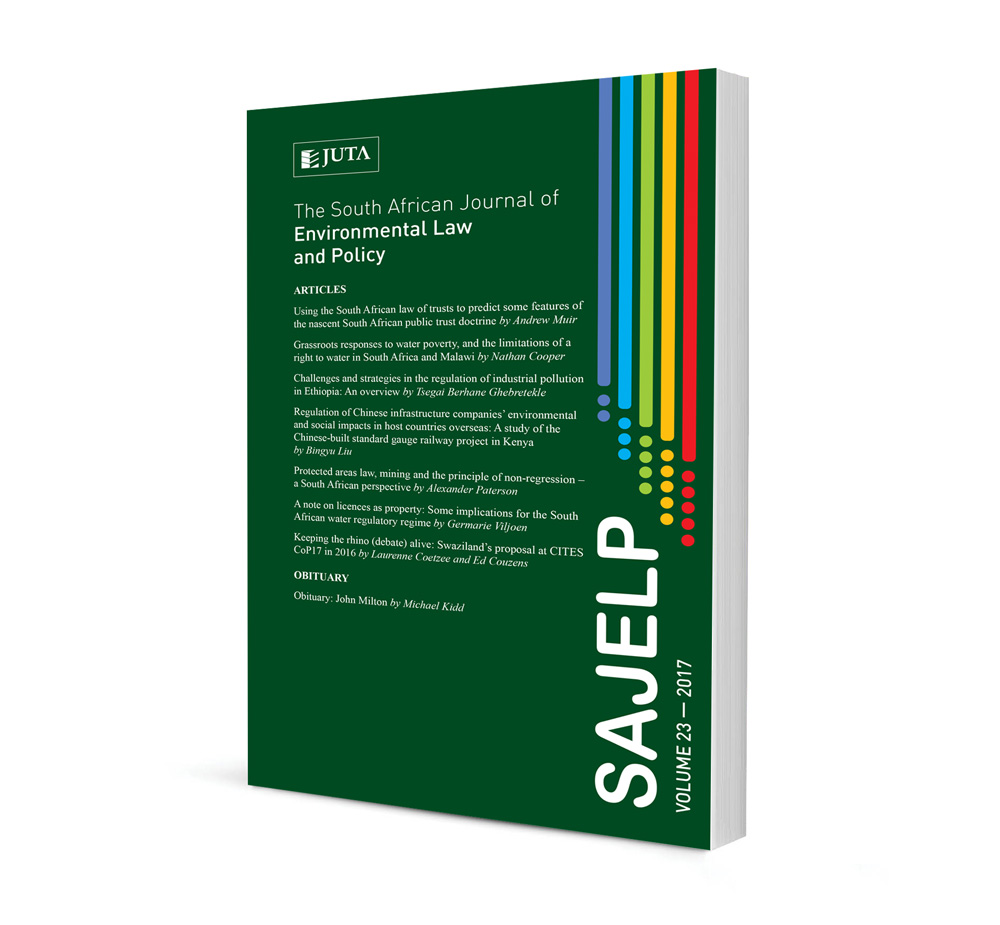Case Notes: Locus standi to institute a private prosecution of environmental offences in South Africa: Uzani Environmental Advocacy CC v BP Southern Africa (Pty) Ltd

Case Notes: Locus standi to institute a private prosecution of environmental offences in South Africa: Uzani Environmental Advocacy CC v BP Southern Africa (Pty) Ltd
Author: Jamil Ddamulira Mujuzi
ISSN: 2616-8499
Affiliations: LLB (Makerere) LLM (Pret) LLM (UFS) LLD (UWC), Lecturer, Faculty of Law, University of the Western Cape
Source: South African Journal of Environmental Law and Policy 2020, p. 161 – 178
https://doi.org/10.47348/SAJELP/v26/a6
Abstract
In Uzani Environmental Advocacy CC v BP Southern Africa (Pty) Ltd, in the first ever private prosecution under section 33 of the National Environmental Management Act, British Petroleum (BP) was prosecuted and convicted for constructing filling stations without the necessary authorisation. The judgment deals mostly with the issue of locus standi to institute a private prosecution for environmental offences. The purpose of this note is to highlight the issues that emerge from the judgment. The note also discusses the role that could be played by the National Director of Public Prosecutions should they decide to take over a private prosecution instituted under section 33 of NEMA.
